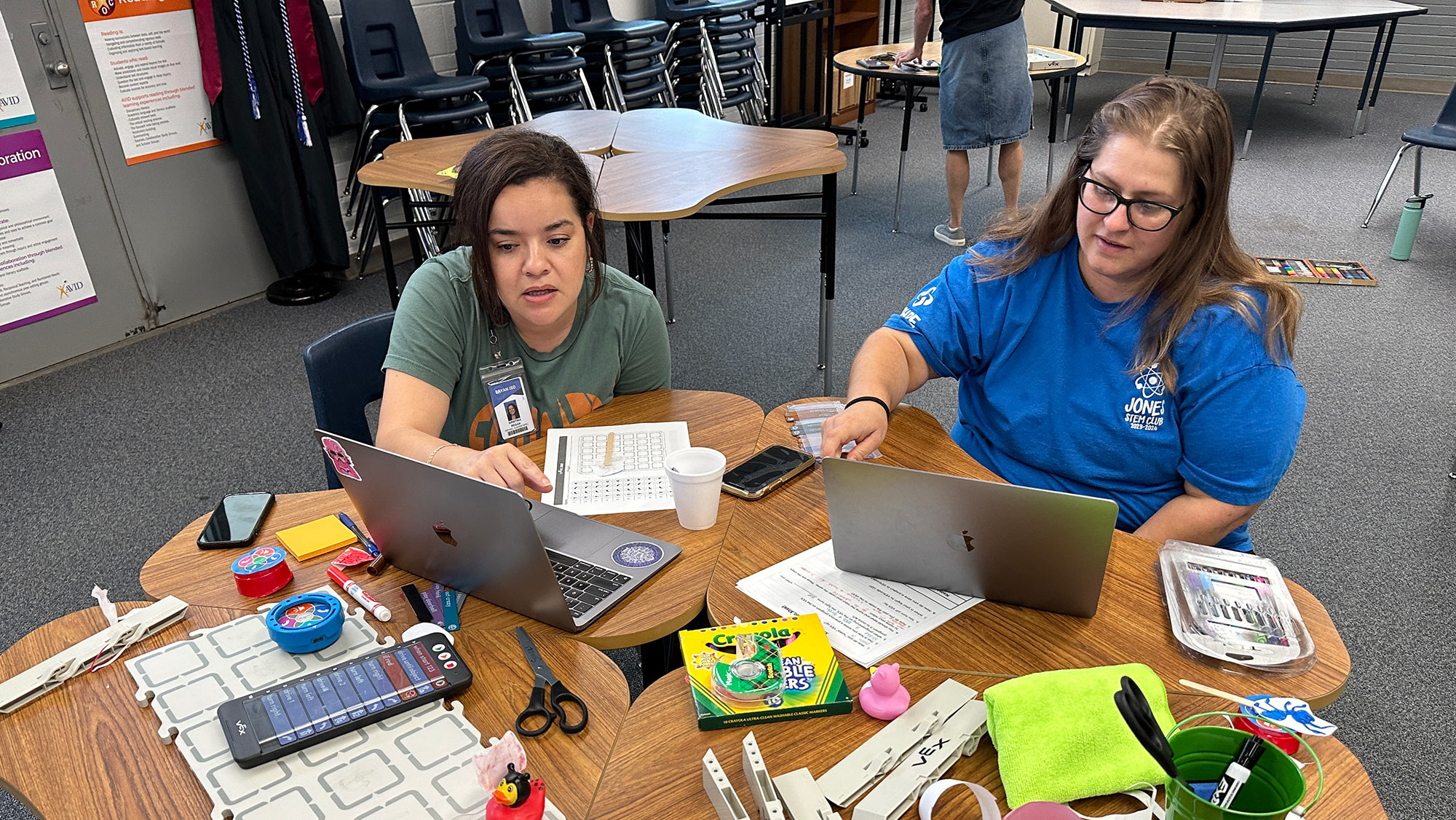
Laura Stafford, an advanced academic specialist at Bryan Independent School District (BISD), loves seeing young children become fascinated by robotic technology. Now, after completing the Launch K-5 professional development training hosted by Texas A&M Engineering’s Spark! PK-12 Engineering Education Outreach in summer 2024, Stafford and 11 of her colleagues are introducing age-appropriate, cutting-edge robotic technology in more BISD elementary classrooms.
This new professional development extends the Spark! team’s commitment to helping Texas kindergarten-grade 5 (K-5) educators enhance their ability to deliver high-quality science, technology, engineering and math (STEM) education.
The Launch K-5 training, which is aligned with the state’s revised Texas Essential Knowledge and Skills in Technology Applications, focuses on problem-solving, critical thinking, computational thinking, algorithms and abstraction. “We're hoping to create an awareness around how to teach these new standards,” said Spark! Associate Director Gabe Valdez. “We have a repository of lessons and activities for these teachers so they will leave equipped with the know-how to implement the standards in their classrooms and the resources to do so.”
The Spark! team will offer additional Launch K-5 trainings for elementary educators on June 25-26 and July 21-22 at Texas A&M University. Additional professional development opportunities will be planned for the 2025-26 school year. “We're willing to host professional development here at Texas A&M or to travel to a school district that wants to hold a training for their teachers,” Valdez said.
The Launch K-5 professional development, which consists of two days of in-person training as well as asynchronous training through Code.org, is free.
As an added incentive, educators who complete the entire training will receive $200 in technology supplies. Every K-2 educator who successfully completes the training will receive two VEX 123 robots while educators in grades 3-5 classrooms will get a BBC micro:bit V2 Club Pack upon successfully completing the professional development sequence.
These technology supplies become the property of each teacher who successfully completes the training. That means that the teacher has the option to take the technology with them if they are employed by another school or district.
Elementary educators who complete this training also earn their computer science certificate and can fulfill their teacher evaluation requirements in relation to advancing their own education and learning how to enhance students’ education. Additionally, some districts may credit teachers with gifted and talented professional development hours for attending this training.
Sparking Teachers’ Instruction
This training came at just the right time for Stafford and her colleague, Kristina Regan, who had been looking for ways to expand robotics instruction beyond the district’s elementary gifted and talented program. They credit the district’s close relationship with Spark! with paying dividends by inviting Bryan ISD elementary educators to the pilot training. “Spark! has such a phenomenal team,” said Regan. “They take community outreach to a completely whole new level so we're very grateful to have that partnership.”
The two specialists are now working with classroom teachers to incorporate ideas from the Spark! training into their classrooms. For example, teachers can use the VEX123 robot to help bring age-appropriate stories such as Little Red Riding Hood to life or rely on the micro:bit packet to physically demonstrate lessons in counting.
BISD educators also are inviting students to use the design process introduced by Spark! to come up with innovative design solutions to problems. “The design process teaches students that they have to brainstorm and come up with multiple solutions, so you see that divergent thinking and productive struggle,” Regan explained. “Additionally, this process prepares students for the jobs that they're going to have 15-20 years from now because they have this background knowledge of learning how to communicate with technology through technology.”
The teachers also found that these lessons help students with the important skill of resilience. “The robotics teaches them to learn how to overcome failure when what they did didn’t work,” Stafford said. “And when they do get it to work, the light bulb goes off and the gratification is there: ‘Oh my gosh, I did this—and not because my teacher gave me the answer!’”
For more information about attending one of the free Launch K-5 professional development opportunities this summer (June 25-26 and July 21-22) at Texas A&M University or scheduling the training in your school district, please register or contact spark@tamu.edu.